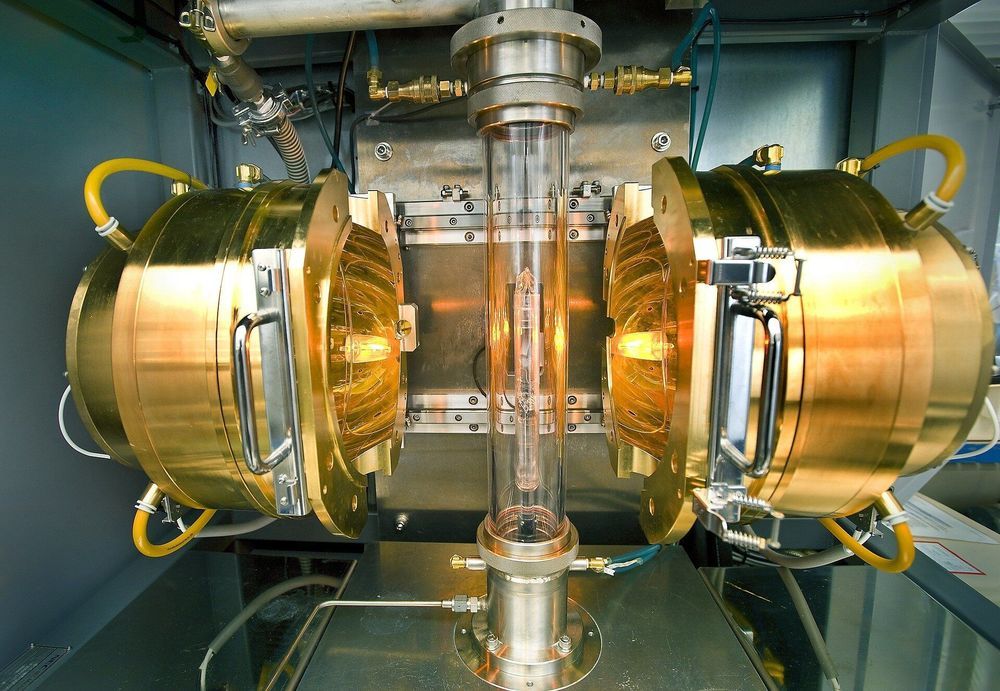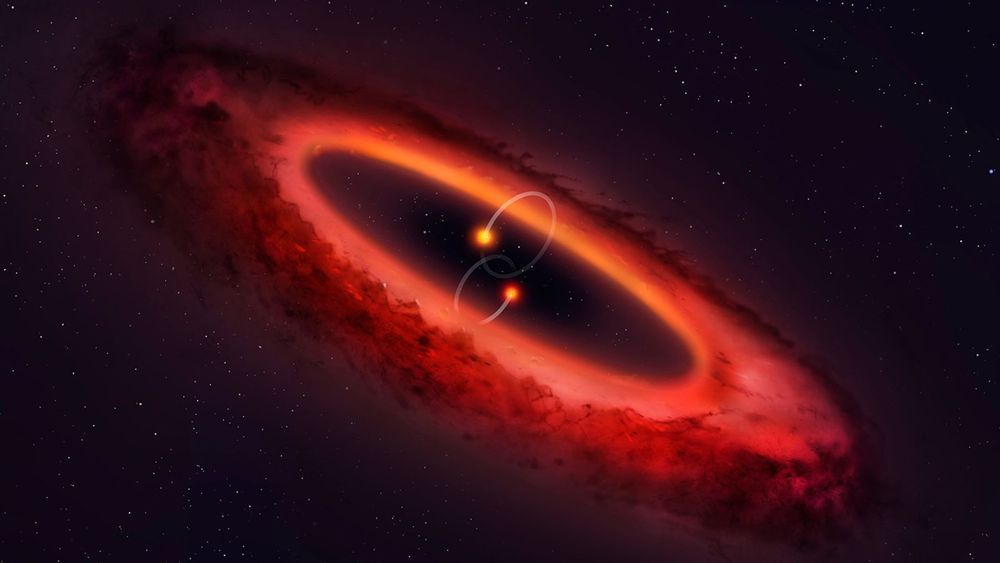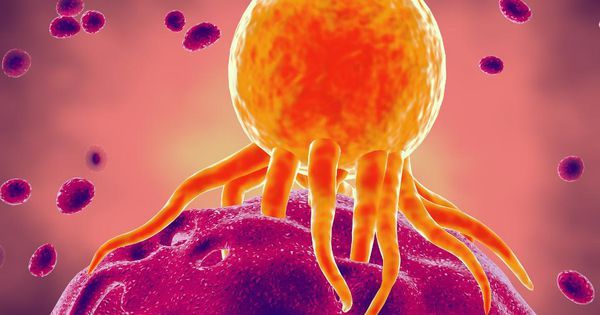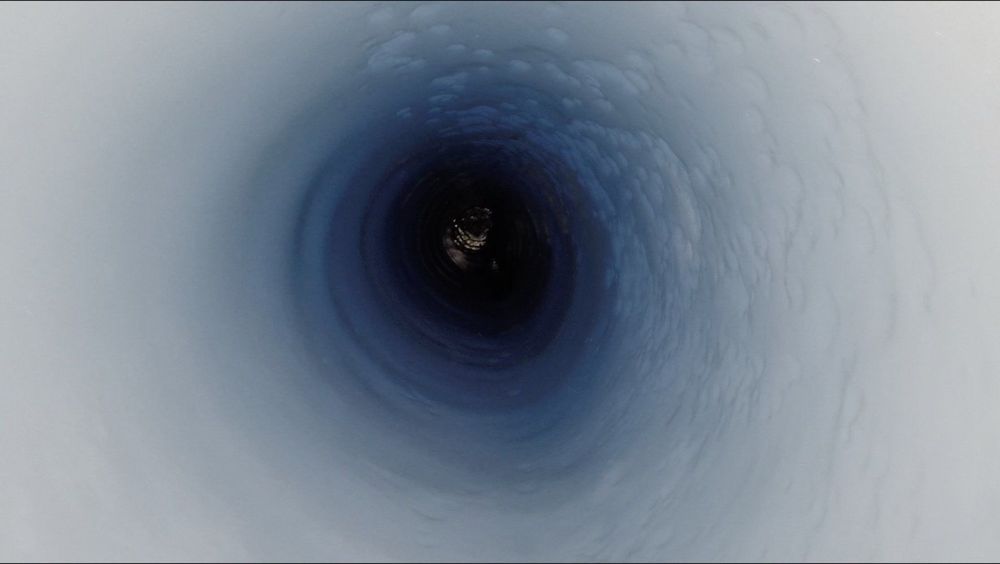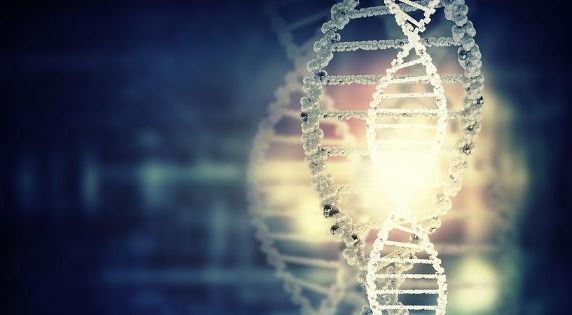Page 8229
Jan 15, 2019
Researchers discover new evidence of superconductivity at near room temperature
Posted by Genevieve Klien in categories: computing, physics
Researchers at the George Washington University have taken a major step toward reaching one of the most sought-after goals in physics: room temperature superconductivity.
Superconductivity is the lack of electrical resistance and is observed in many materials when they are cooled below a critical temperature. Until now, superconducting materials were thought to have to cool to very low temperatures (minus 180 degrees Celsius or minus 292 degrees Fahrenheit), which limited their application. Since electrical resistance makes a system inefficient, eliminating some of this resistance by utilizing room temperature superconductors would allow for more efficient generation and use of electricity, enhanced energy transmission around the world and more powerful computing systems.
“Superconductivity is perhaps one of the last great frontiers of scientific discovery that can transcend to everyday technological applications,” Maddury Somayazulu, an associate research professor at the GW School of Engineering and Applied Science, said. “Room temperature superconductivity has been the proverbial ‘holy grail’ waiting to be found, and achieving it—albeit at 2 million atmospheres—is a paradigm-changing moment in the history of science.”
Continue reading “Researchers discover new evidence of superconductivity at near room temperature” »
Jan 15, 2019
Giant leaf for mankind? China germinates first seed on moon
Posted by Genevieve Klien in category: space
Jan 15, 2019
This Quadruple Star System Is Unlike Anything We’ve Ever Seen Before
Posted by Genevieve Klien in category: space
Astronomers using the ALMA telescope have discovered an oddly tilted planet-forming disk within a double binary star system, a configuration that up until this point only existed in theory.
Quadruple star systems featuring two binary pairs are nothing unusual, nor is the discovery of a surrounding protoplanetary disk—a ring of gas and dust that gradually congeals to form planets. A star system located 146 light-years from Earth, called HD 98800, has all these things, but as new research published today in Nature Astronomy reveals, this system features an exceptionally strange protoplanetary disk.
Jan 15, 2019
Newly Discovered Mechanism Helps Our Own Immune Systems Fight Cancer
Posted by Genevieve Klien in category: biotech/medical
In the study, researchers focused on a mechanism that routinely serves the cell by marking human virus-like genes in order to avoid identifying them as viruses. Together with the Harvard team, Levanon has discovered that “when inhibiting this mechanism, the immune system can be harnessed to fight cancer cells in a particularly efficient manner, and most effectively in lung cancer and melanoma.”
“We found that if the mechanism is blocked, the immune system is much more sensitive,” Levanon said. “When the mechanism is deactivated, the immune system becomes much more aggressive against the tumor cells.”
According to researchers, most patients with cancer either do not respond to immune checkpoint blockade (a type of drug that blocks certain proteins made by some types of immune system cells, such as T cells, and some cancer cells) or develop resistance to it. The National Cancer Institute (NCI) says these proteins help keep immune responses in check and can keep T cells from killing cancer cells. “When these proteins are blocked, the ‘brakes’ on the immune system are released and T cells are able to kill cancer cells better,” says the NCI. Some immune checkpoint inhibitors are used to treat cancer as immunotherapy uses the body’s immune system to fight cancer.
Continue reading “Newly Discovered Mechanism Helps Our Own Immune Systems Fight Cancer” »
Jan 15, 2019
Hidden Beneath a Half Mile of Ice, Antarctic Lake Teems with Life
Posted by Genevieve Klien in category: alien life
The dark waters of a lake deep beneath the West Antarctic ice sheet and a few hundred miles from the South Pole are teeming with bacterial life, say scientists — despite it being one of the most extreme environments on Earth.
The discovery has implications for the search for life on other planets — in particular on the planet Mars, where signs of a buried lake of liquid saltwater were seen in data reported last year by the European Space Agency’s orbiting Mars Express spacecraft.
Expedition leader John Priscu, a professor of polar ecology at the University of Montana, told Live Science in a telephone interview from Antarctica this week that early studies of water samples taken from Lake Mercer — which is buried beneath a glacier — showed that they contained approximately 10,000 bacterial cells per milliliter.
Jan 15, 2019
Next-generation LHC: CERN lays out plans for €21-billion super-collider
Posted by Genevieve Klien in category: physics
WIliot is a semiconductor company developing battery-free Bluetooth tags for the IoT market. Applications include smart packaging and asset tracking.
Jan 15, 2019
Paralyzed rats walk again after scientists 3D-print a new spinal cord: Implant successfully fueled nerve growth — and could be a game changer for humans
Posted by Paul Gonçalves in categories: 3D printing, biotech/medical, neuroscience
For the first time, scientists have used rapid 3D printing technologies to create a spinal cord. The team at UC San Diego then put neural cells in it and implanted it into rats, who walked again.
Jan 15, 2019
Epigenetic Memories are Passed Down 14 Successive Generations, Game-Changing Research Reveals
Posted by Victoria Generao in categories: biotech/medical, genetics, nanotechnology
The past of our ancestors lives on through us: Groundbreaking research illustrates how parental experience is not only epigenetically imprinted onto offspring, but onto an unprecedented number of future generations. Rather than occurring over the elongated time scale of millions of years, genetic change can transpire in real biological time through nanoparticles known as exosomes…
Until recently, it was believed that our genes dictate our destiny. That we are slated for the diseases that will ultimately beset us based upon the pre-wired indecipherable code written in stone in our genetic material. The burgeoning field of epigenetics, however, is overturning these tenets, and ushering in a school of thought where nurture, not nature, is seen to be the predominant influence when it comes to genetic expression and our freedom from or affliction by chronic disease.
Epigenetics: the demise of biological determinism.

